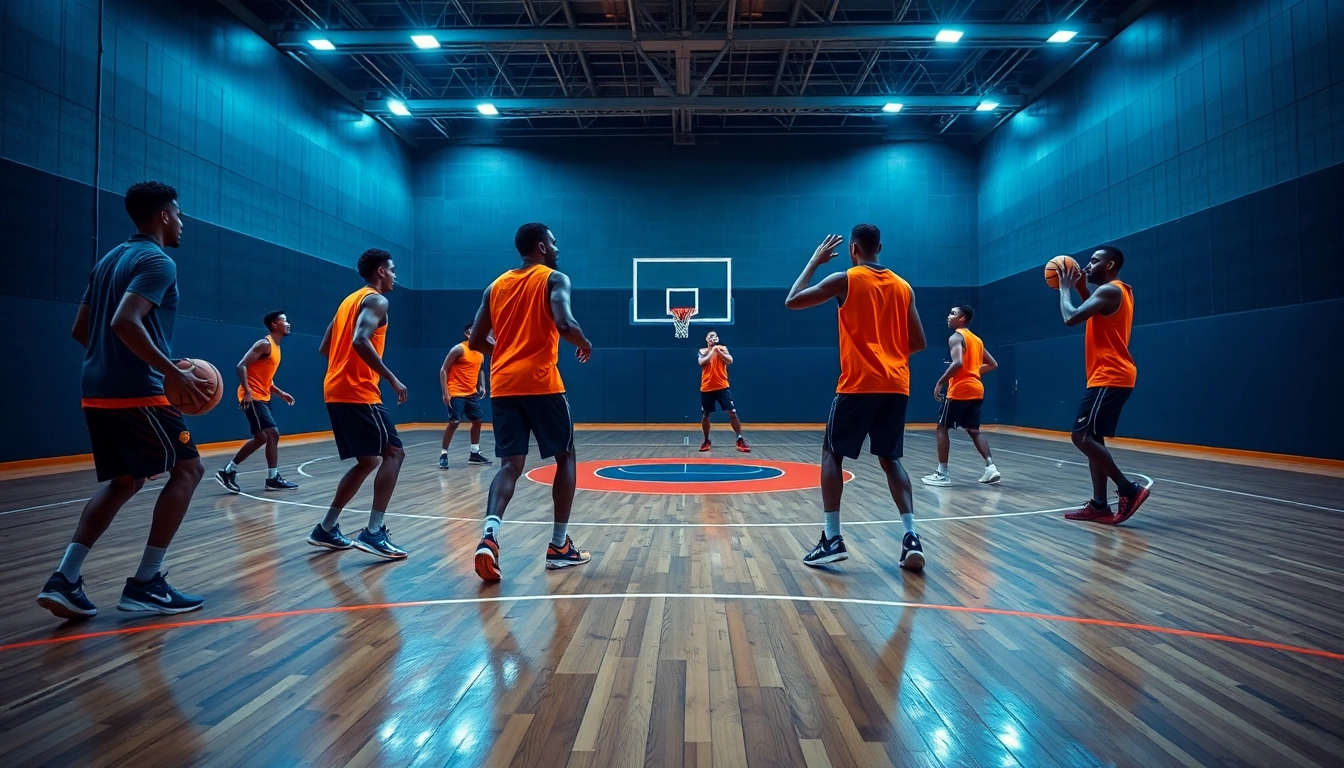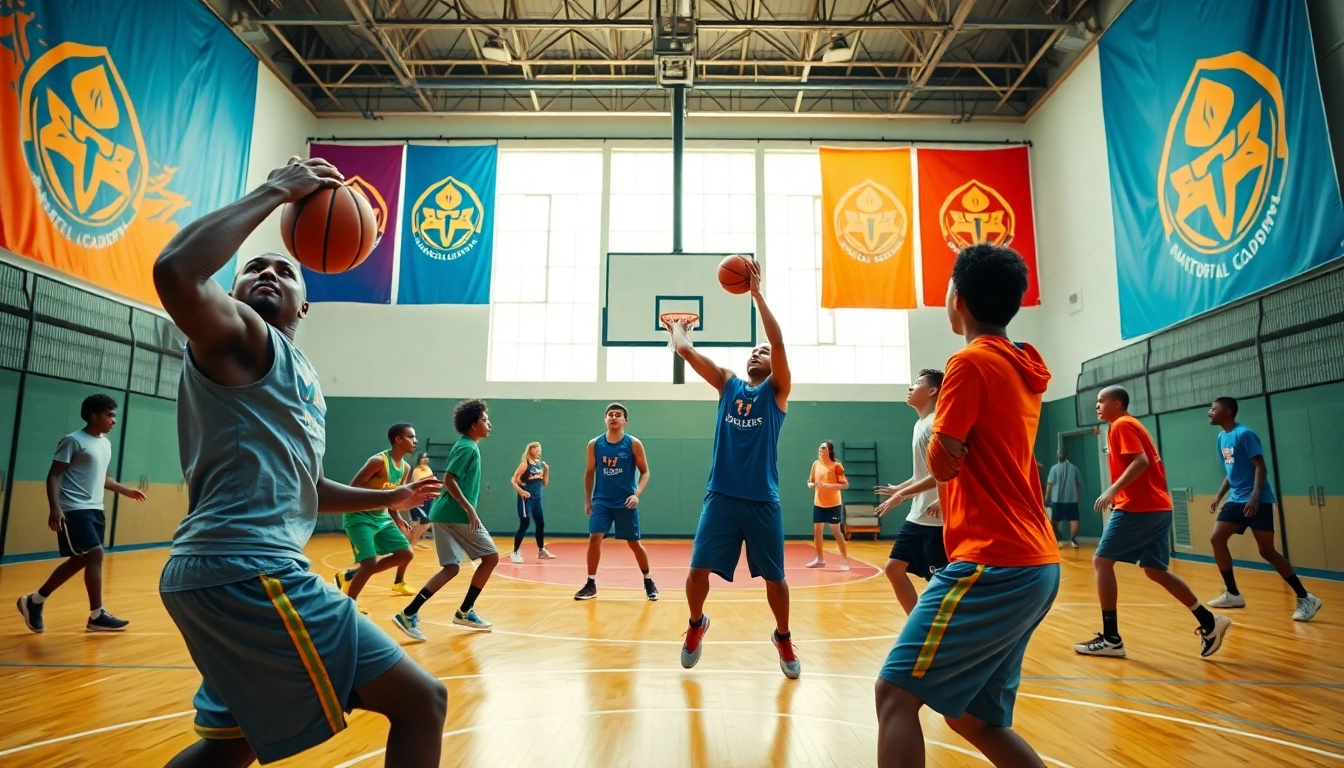1. Introduction to Basketball Training Programs
Basketball is not just a game of physical prowess; it’s an intricate dance of skill, strategy, and teamwork. To excel in this sport, players often seek out the best basketball training programs available. These programs are designed to enhance skills, bolster athletic performance, and instill a deep understanding of the game. As the competition in basketball intensifies, the need for high-quality training becomes increasingly paramount.
What are Basketball Training Programs?
Basketball training programs are structured training initiatives aimed at improving various aspects of a player’s game. These programs can range from individual skill development sessions to comprehensive team training camps, often tailored to meet the unique needs of players at different skill levels. Training may include elements like shooting drills, ball handling, defensive tactics, conditioning, and overall game strategy. Furthermore, modern training increasingly integrates sports science to optimize performance and reduce injury risk.
Importance of Quality Training
Quality training is essential in basketball for several reasons. Firstly, proper training helps athletes develop their skills effectively, ensuring they progress without developing bad habits. Secondly, well-structured programs address the individual’s weaknesses while enhancing their strengths. Moreover, participating in a high-quality training program can boost a player’s confidence, which is crucial for performance in high-pressure situations. With the right guidance, players can also learn about game strategy, leadership, and teamwork—all critical components of basketball.
Overview of Various Training Styles
Basketball training programs can vary widely in style and approach. Some focus on traditional drills and physical conditioning, while others employ more innovative techniques, including virtual training and video analysis. Here are a few popular training styles:
- Technical Training: Focuses on refining specific skills like shooting, dribbling, and passing.
- Strength and Conditioning: Aims at improving physical attributes such as speed, agility, and endurance.
- Tactical Training: Concentrates on understanding game systems, offensive and defensive strategies.
- Mental Conditioning: Trains players in focus, mental resilience, and psychological strategies for performance under pressure.
2. Key Features of the Best Basketball Training Programs
The effectiveness of a basketball training program is often determined by a few critical features. Here’s what to look for in the best training programs:
Tailored Skill Development for Every Age
The best training programs recognize that players come from diverse backgrounds and possess varying skill levels. Tailored training that aligns with a player’s age, experience, and aspirations is crucial for effective skill enhancement. For instance, youth players may need to focus on developing fundamental skills, while advanced athletes might require specialized drills for refining shooting techniques or improving defensive play.
Incorporating Professional Coaching
Professional coaches bring invaluable experience and insights into basketball training. They not only instruct but also mentor players, providing vital feedback and encouragement. Quality training programs often feature coaches with collegiate or professional backgrounds who understand the intricacies of the game. This experience is critical in guiding player development and helping each athlete understand what it takes to play at higher levels.
Access to Modern Training Facilities
Access to quality training facilities significantly impacts the training experience. Modern basketball training programs provide state-of-the-art equipment and facilities—such as indoor courts, shooting machines, strength training gear, and recovery facilities. These resources allow players to train most effectively and safely, potentially enhancing their performance on the court.
3. Evaluating Different Training Programs
With numerous basketball training options available, evaluating and selecting the right program can be daunting. Here are key aspects to consider:
Assessment of Program Structures
Understanding the structure of a training program is essential. A well-structured program should include a mix of drills, gameplay simulations, performance reviews, and progress tracking. Programs with clear progression metrics inspire confidence and keep players motivated to reach their goals.
Player Progress Tracking Methods
Effective training programs incorporate methods for tracking player progress, such as performance metrics, video analysis, and regular feedback from coaches. These tools help players identify areas for improvement and celebrate their successes, creating a culture of continuous improvement and accountability.
Success Stories and Player Testimonials
One of the best ways to evaluate a training program is to look for success stories and testimonials from previous participants. Reviews from former players can provide insights into the effectiveness of the program, the quality of coaching, and the overall experience. Additionally, success stories of players who have made significant strides in their performance can serve as great motivation for potential recruits.
4. Online vs. In-Person Training Options
With the rise of technology, basketball training options have expanded into online formats, allowing players more flexibility. Understanding the differences between these options can help players make informed choices.
Benefits of Online Training Programs
Online basketball training programs offer convenience and flexibility, allowing players to train at their own pace and on their own schedules. Many online platforms offer instructional videos, instructional articles, and even virtual coaching sessions. Moreover, these programs often cover a broad range of topics that players can revisit as needed, making them an excellent supplementary resource.
Advantages of Face-to-Face Coaching
In-person training possesses distinct advantages, particularly when it comes to developing skills that require immediate feedback and correction. Face-to-face coaching fosters better communication, allowing players to ask questions and receive hands-on guidance. Additionally, the social interaction and competitive spirit present in live training sessions can be a significant motivating factor for many athletes.
Choosing the Right Format for You
Choosing between online and in-person training depends on individual needs, preferences, and circumstances. Players should assess factors such as their current skill level, learning style, availability, and personal goals. Some might benefit from a hybrid approach, using online resources to supplement in-person training.
5. Tips for Choosing the Right Basketball Training Program
Selecting the right basketball training program is crucial for maximizing your development. Here are tips to help you make the best choice:
Identifying Your Goals and Skill Level
Begin by clearly defining your goals: are you aiming to improve specific skills, gain general fitness, or prepare for competitive play? Understanding your skill level is equally important, as this will help you determine the appropriate program that matches your current abilities and future aspirations.
Researching Quality Trainers and Programs
Researching trainers and their corresponding programs is fundamental to ensuring a positive training experience. Look for coaches with a proven track record of developing players, positive reviews, and professional credentials. Engaging with past participants can offer insights into what you can expect from the program.
Trial Sessions and Making the Final Decision
Many training programs offer trial sessions or introductory classes, providing potential participants a taste of what to expect. These opportunities can be invaluable for assessing a program’s fit for your needs. After exploring a few options, consider factors such as coaching style, training environment, and overall atmosphere when making your decision.
Conclusion
Basketball training programs play a pivotal role in shaping players and enhancing their skill sets. By understanding the essential features of effective programs, evaluating one’s own needs and goals, and choosing the right training format, athletes of all levels can significantly benefit from their training endeavors. Remember that becoming a better basketball player is a journey—one that requires dedication, quality training, and a passion for the game.



